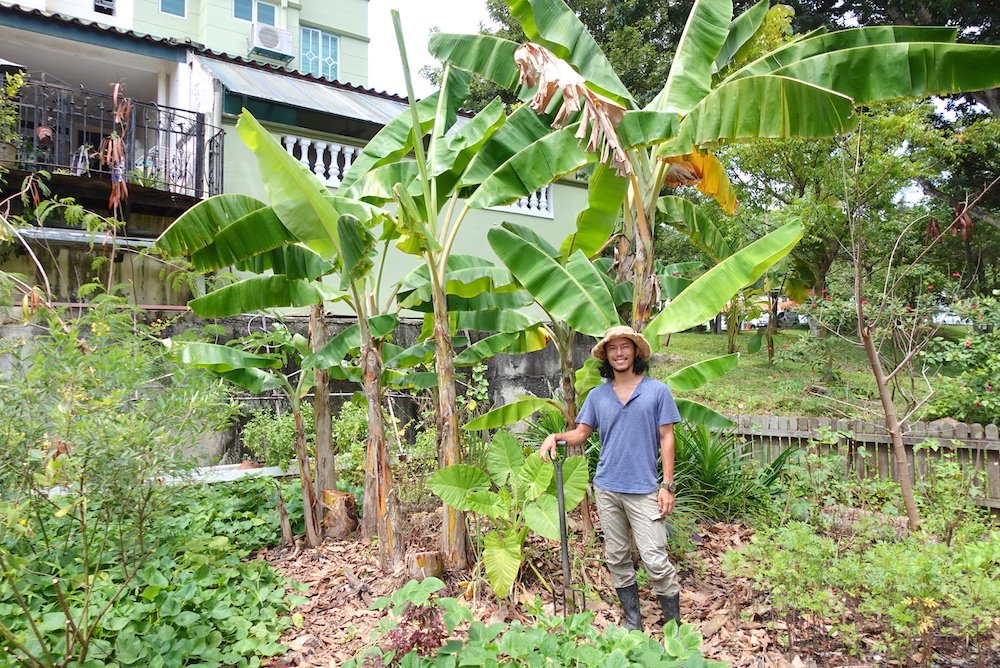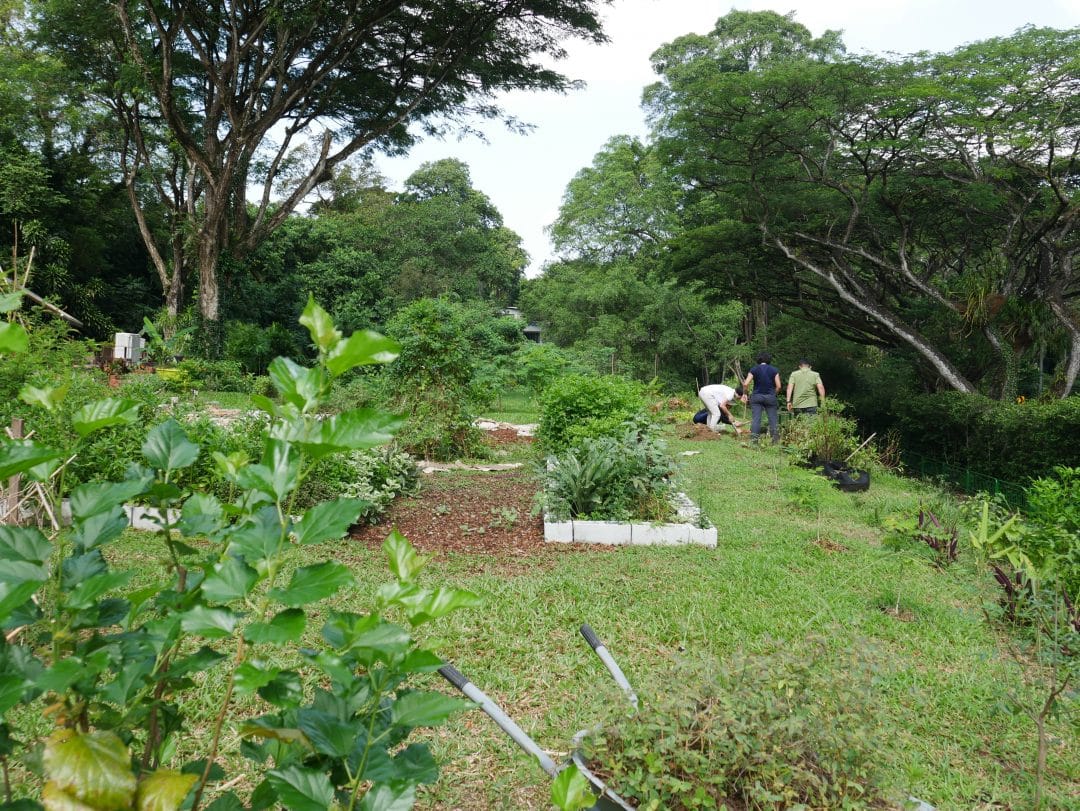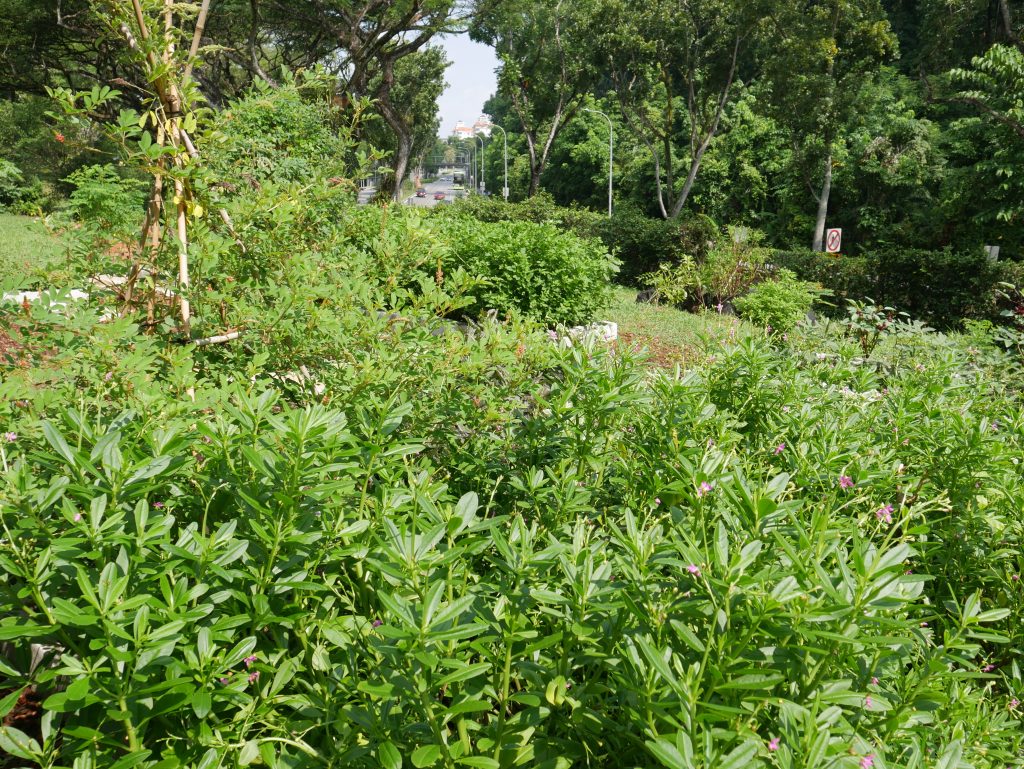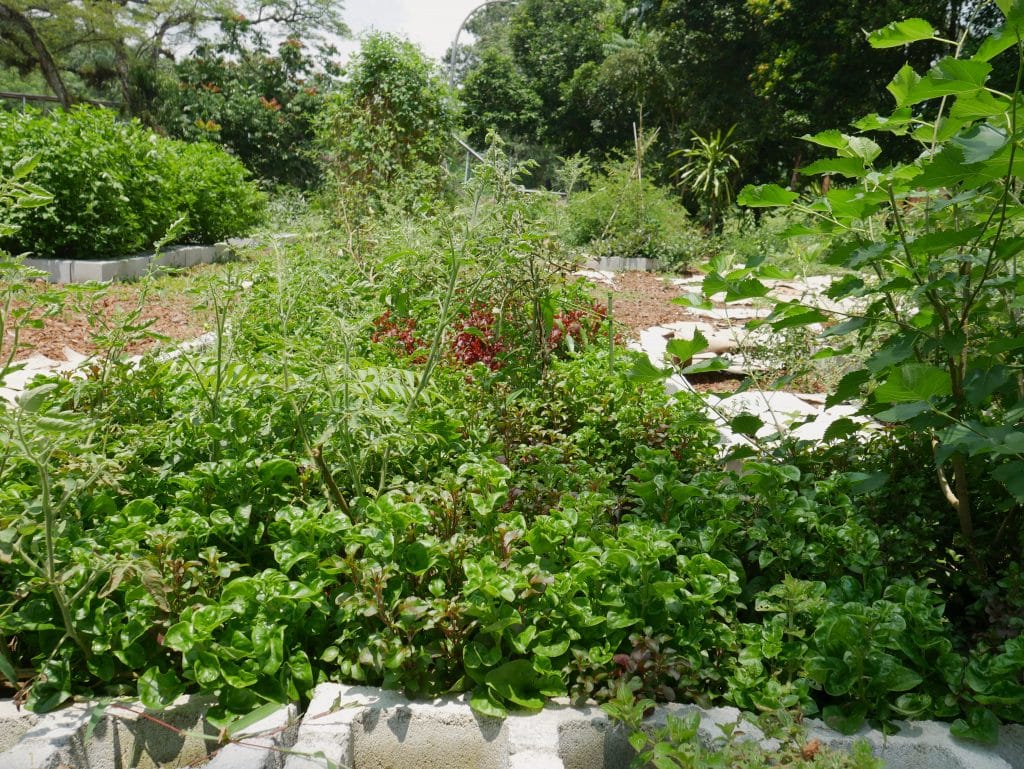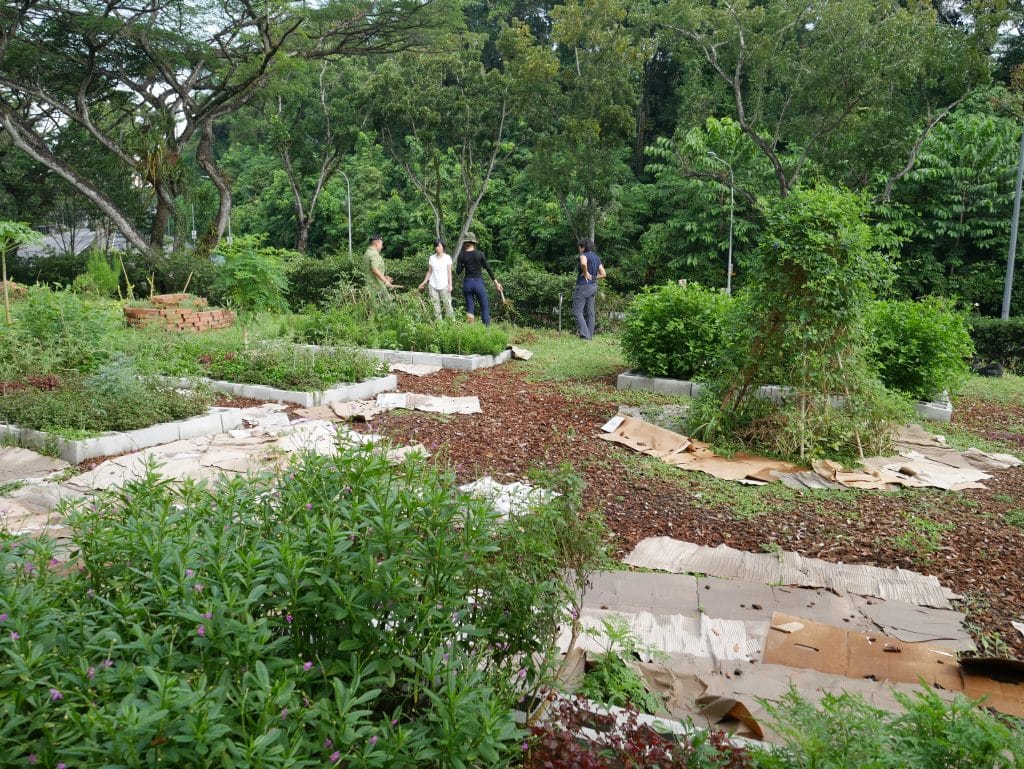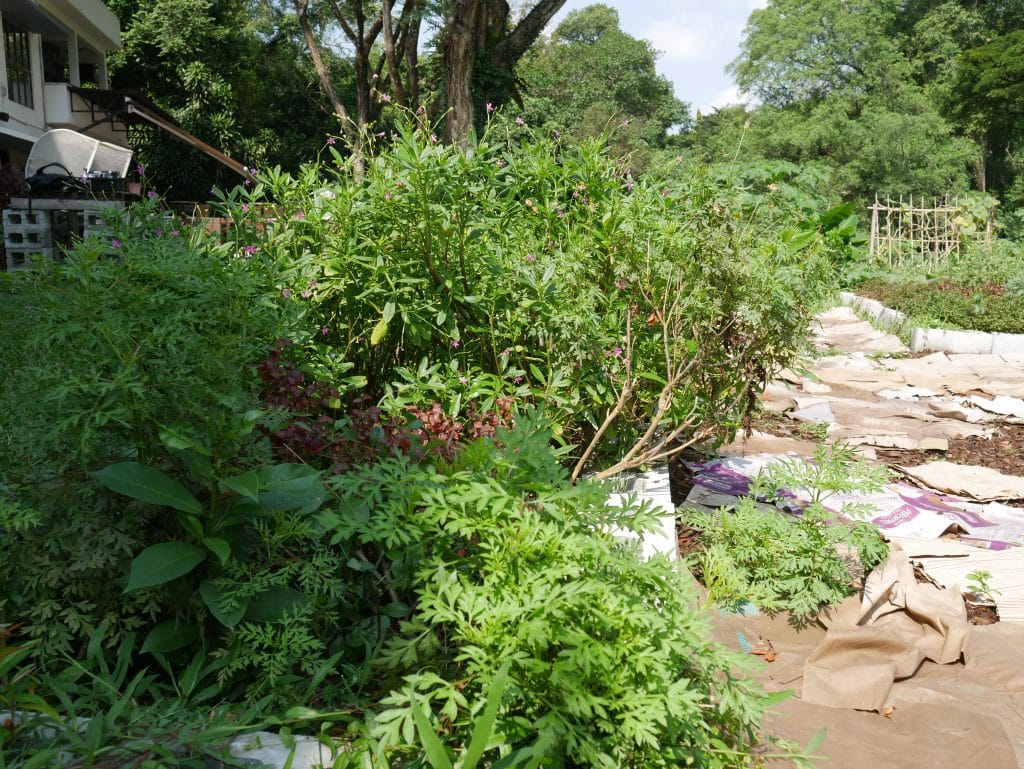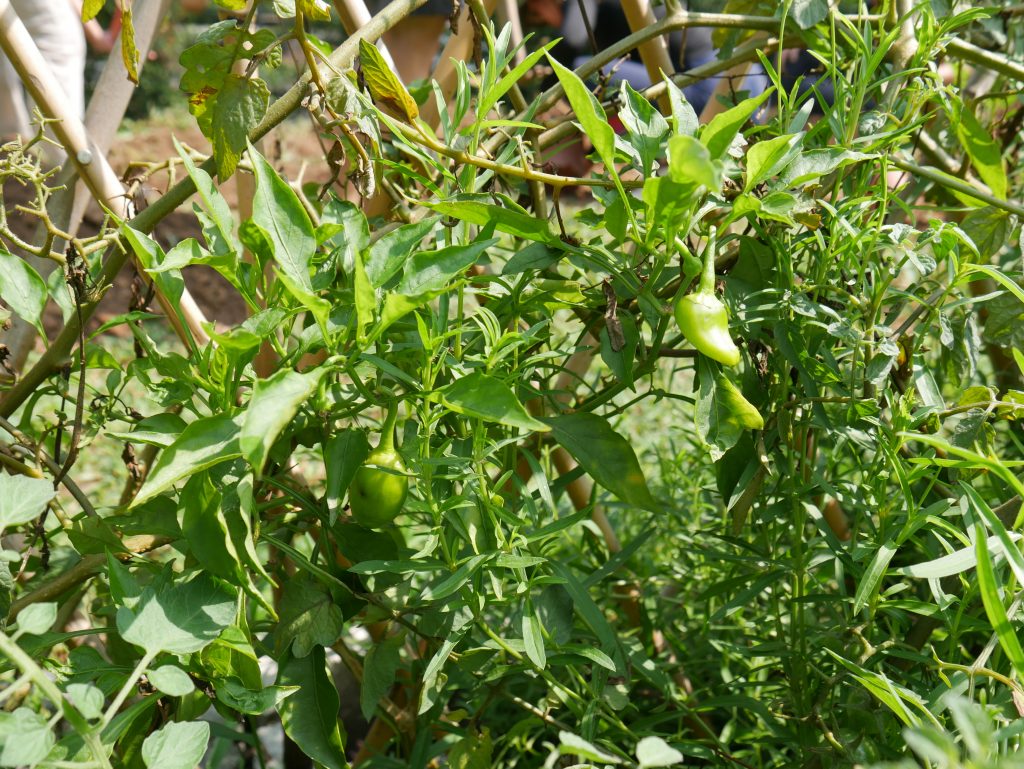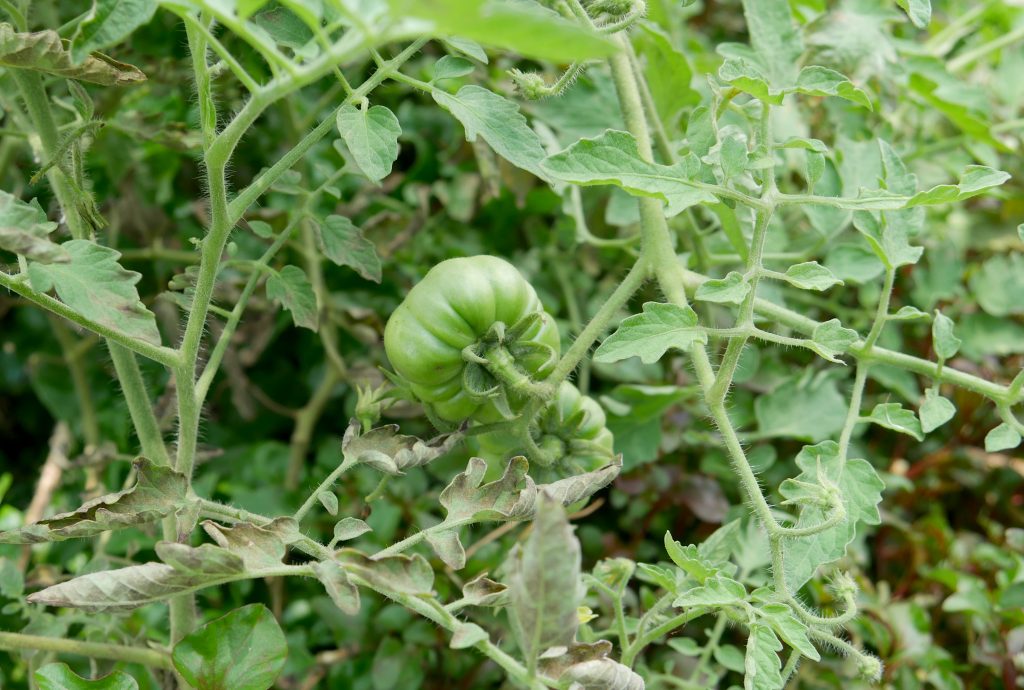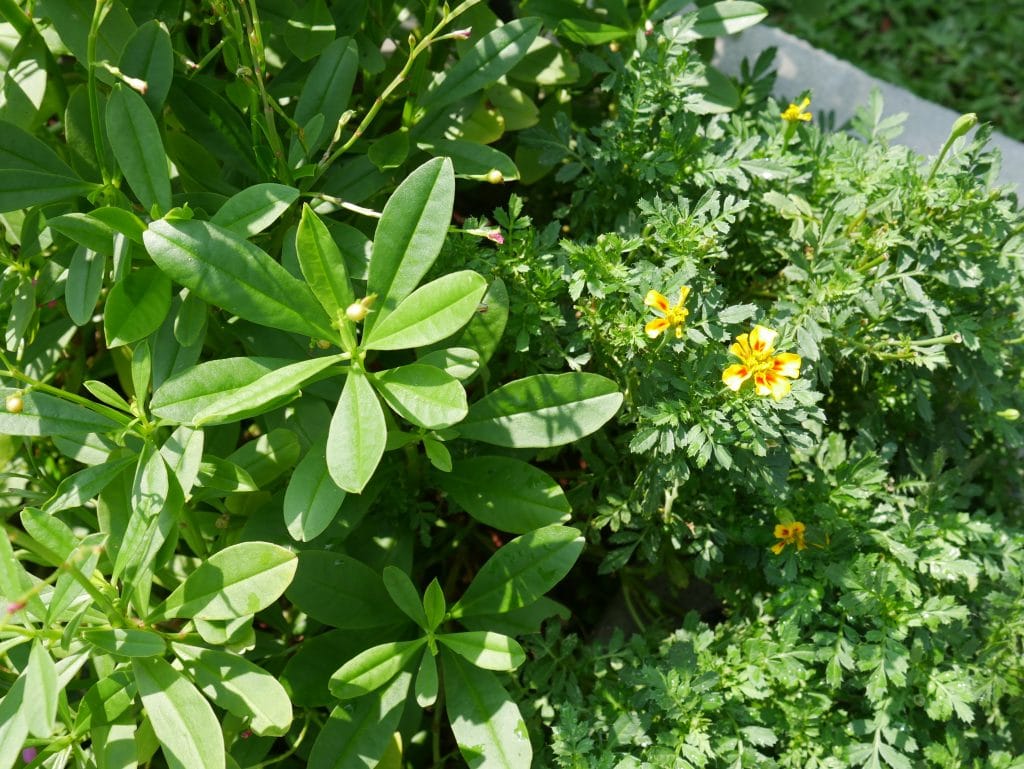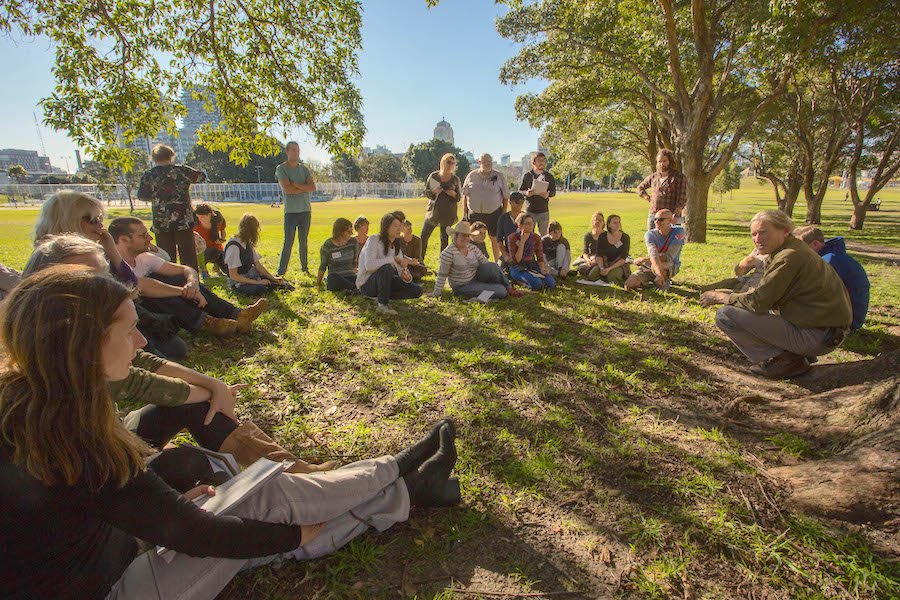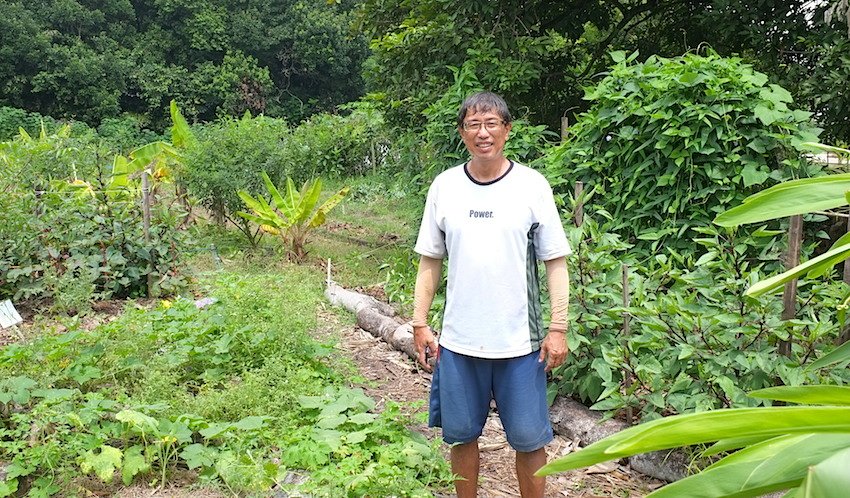When Marcus Koe joined the neighbourhood Jalan Senang Community Garden in Kembangan, Singapore, he was looking to grow vegetables in-ground. He was surprised to find that nobody was keen to take on a large plot of land near the entrance of the garden, which was filled with grass and weeds. He requested for this spot and started to implement permaculture methods on it.
Situated on a slope, rainfall makes its way into this part of the garden first. As the soil was compacted, this area was waterlogged on rainy days, and on sunny days it was hard. It was a challenge for him to grow vegetables here and he found that plants would not thrive in the beginning.
He decided to use a banana circle as a solution. He planted a cluster of bananas in the formation of a circle, with a 50cm deep ditch in the middle, and filled it with leaves and other organic materials, including compost that he makes together with others in the community garden.
This ditch also functions as a convenient place for him to compost his bulky garden waste. It also allows water to collect in there, meaning there is no stagnant water. In addition the ditch functions like a sponge, releasing water to the plants around it when required. As the organic matter breaks down, it feeds the plant and improves the soil.
The bananas started to do well and he grew other plants around it, and designed the garden around the bananas, using materials such as logs and leaves from the immediate vicinity of the garden. He also planted leguminous plants like pigeon pea as a nitrogen fixer, and as It matured, he would also prune the branches and leave it on the ground to add fertility to the soil. To find out more, watch this interview!

